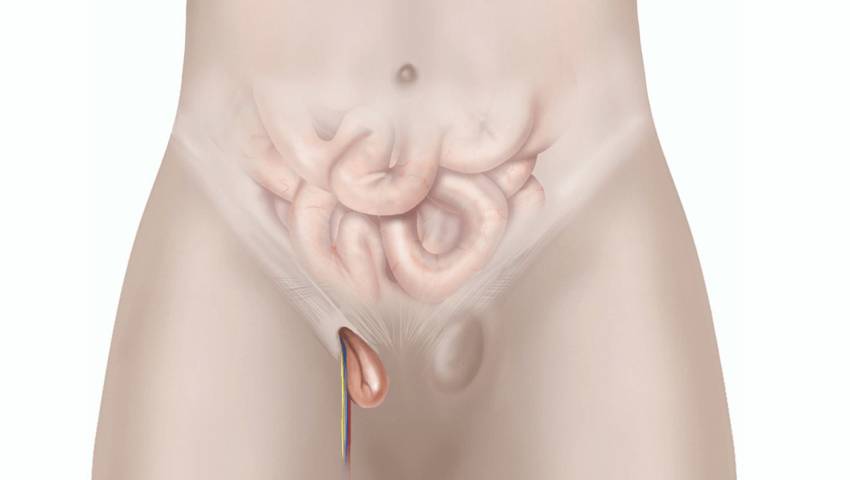
If your are facing the problem of Hernia or recently undergo the hernia repair or hernia surgery or facing any hernia complications and looking best ways to prevent hernia complications then you’re at the right place. In this Blog, Dr. Arun Nair – Hernia Specialist in Thrissur guides on the what is different hernia complications and how to prevent them. If you have a hernia, you know the pain and discomfort. The look of a hernia can also be disquieting. But you don’t have to live with it, and you can enjoy life again. The risk of complications is higher in patients who do not take care of themselves properly during the postoperative period. You should know about the various complications that can occur after hernia surgery.
What Is Hernia?
A hernia occurs when an internal organ or tissue pokes through a weak spot in the surrounding muscle or towel. This can produce a visible bulge or lump, generally in the tummy or groin. Hernias may lead to discomfort, pain, and implicit complications if not addressed instantly. generally, surgery is needed to repair the weakened area and return the organ or towel to its proper position, furnishing relief and restoring normal function. There is no other way to complete hernia repair than through surgery. With the latest cutting-edge advancements, hernia surgery and recovery are quicker than ever before. However, to get yourself feeling your best, and prevent further hernias from forming
What Are The Complications Of Hernia?
Hernia complications, as explained by Dr Arun Nair, can vary and encompass:
- Strangulation: This is when a hernia becomes trapped, leading to a cut-off blood supply. It can cause severe pain, nausea, puking, and potentially life-changing towel damage if not instantly treated.
- Obstruction: If a hernia blocks the normal flow of contents through the digestive system, it can trigger symptoms like constipation, bloating, abdominal distension, and discomfort. This obstruction may necessitate urgent medical attention.
- Incarceration: When a hernia becomes trapped with its blood force completely, it can Cause pain, discomfort, and difficulty in pushing the hernia back into place. Without proper operation, this condition can worsen and may cause surgical intervention.
- Recurrence: After hernia repair surgery, there is a risk of the hernia recreating, especially if underlying factors like rotundity, habitual coughing, or heavy lifting aren’t addressed. These factors can increase the liability of hernia rush over time.
Prevention of Hernia:
Dr Arun Nair highlights practical steps to prevent hernias:
- Maintain a Healthy Weight: Keep your weight in check with a balanced diet and regular exercise to ease the strain on your abdominal muscles, lowering hernia risks.
- Be Mindful of Lifting: Use proper lifting techniques to avoid muscle strain and hernia development, especially when handling heavy objects.
- Mind Your Posture: Good posture strengthens abdominal muscles, reducing hernia vulnerability. Sit, stand, and lift with proper posture to protect against hernias.
- Quit Smoking: Smoking weakens tissues and increases hernia risks. Quitting can enhance tissue strength and decrease hernia chances.
- Tackle Chronic Cough: Address persistent coughing promptly to prevent abdominal muscle strain and hernia formation.
- Prevent Constipation: Maintain a high-fiber diet, stay doused, and address constipation instantly to lower the threat of hernias from straining during bowel movements.
- Use Supportive Gear: Consider using abdominal binders or belts during heavy lifting or strenuous activities for added abdominal muscle support and reduced hernia risks.
Hernias occur when internal organs or towels protrude through weakened muscles, causing discomfort and implicit complications that may require surgery. Dr. Arun Nair is robotic And Laparoscopic Surgeon in Thrissur, highlights complications of Hernia like strangulation, obstruction, incarceration, hydrocele, and rush, emphasizing the significance of timely treatment. He also recommends preventative measures such as maintaining a healthy weight, proper lifting ways, good posture, quitting smoking, managing habitual cough, preventing constipation, and using probative gear to reduce hernia pitfalls and ameliorate abdominal health.
Recent News

How to Manage Fatty Liver?
14th April 2025
Is Your Constipation Constant? Here’s What
21st March 2025
When Should You Consider Surgery for
12th March 2025
What is Swallowing Disorder? How to
27th February 2025
Is Laser Surgery Good for Anal
3rd February 2025
5 Early Signs of Liver Damage
8th January 2025
The Differences Between Crohn’s and Ulcerative
21st December 2024
Diagnosed with IBD? Here’s What You
10th December 2024
Gallbladder Stone Treatment Pros and Cons
21st November 2024
7 Silent Signs You Have A
24th October 2024Contact info
1ST FLOOR ZABS FORT building, Civil Lane Road, Poothole P.O, Thrissur, Kerala 680004
Church Post Office Road near Parumala, Thiruvalla, Kerala 689626
+91-9539988886
drarungastrosurgeon@gmail.com
St. Gregorios Hospital, Thiruvalla
The Gastro Clinic(Elixir Clinic), Thrissur
© 2025 Dr Arun Gastro Surgeon All rights reserved



